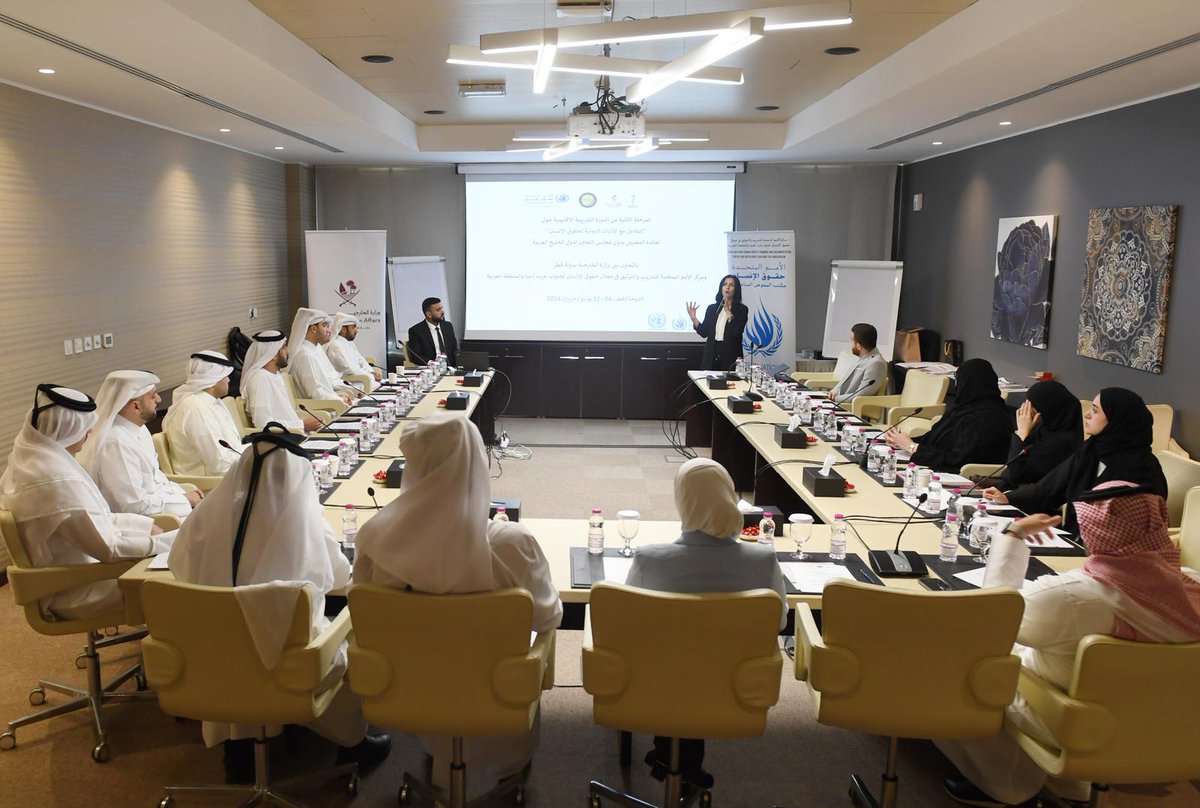The Ministry of Foreign Affairs (MoFA) in Qatar recently launched its second regional training program in collaboration with the United Nations Human Rights Training and Documentation Center for South-West Asia and the Arab Region. The four-day program focuses on interaction with international human rights mechanisms and is attended by diplomats and officials from both Qatar and the Gulf Cooperation Council (GCC) countries. Additionally, representatives from the council’s General Secretariat are also participating in the training.
The primary objective of the training programme is to improve participants’ understanding and engagement with UN human rights mechanisms and international instruments. By enhancing knowledge and skills in this area, diplomats and officials will be better equipped to effectively advocate for human rights at both national and international levels. The program provides a valuable opportunity for participants to learn from experts in the field and share best practices with their peers from other countries in the region.
During one of the sessions of the training programme, participants had the opportunity to engage in discussions and workshops focused on key human rights issues facing the region. Through interactive sessions and case studies, participants gained a deeper understanding of the challenges and opportunities in promoting and protecting human rights in a diverse and dynamic global context. By exchanging ideas and experiences, participants were able to expand their perspectives and develop new strategies for advancing human rights in their respective countries.
The training programme also featured presentations from experts on international human rights law and mechanisms, providing participants with a comprehensive overview of the legal frameworks and tools available to promote human rights. By familiarizing themselves with these resources, diplomats and officials can better navigate the complex landscape of international human rights governance and advocate effectively for the rights of all individuals. The expertise and insights shared during these presentations will undoubtedly enhance participants’ ability to engage with international stakeholders on human rights issues.
In addition to formal presentations and discussions, the training programme also included practical exercises and simulations to help participants apply their knowledge and skills in a real-world context. Through interactive activities and role-playing scenarios, participants were able to test their understanding of key human rights concepts and practice their advocacy and negotiation skills. These hands-on learning opportunities complemented the theoretical aspects of the program and provided participants with valuable experience in addressing human rights challenges in a simulated diplomatic setting.
Overall, the second regional training program organized by the Ministry of Foreign Affairs’ Human Rights Department and the United Nations Human Rights Training and Documentation Center for South-West Asia and the Arab Region is a valuable initiative to enhance knowledge and interaction with international human rights mechanisms. By bringing together diplomats and officials from Qatar and the GCC countries, the program fosters collaboration and knowledge-sharing among a diverse group of professionals working to promote and protect human rights in the region. Through engaging sessions, practical exercises, and expert presentations, participants are equipped with the tools and skills they need to effectively advocate for human rights in their respective countries and on the international stage.











